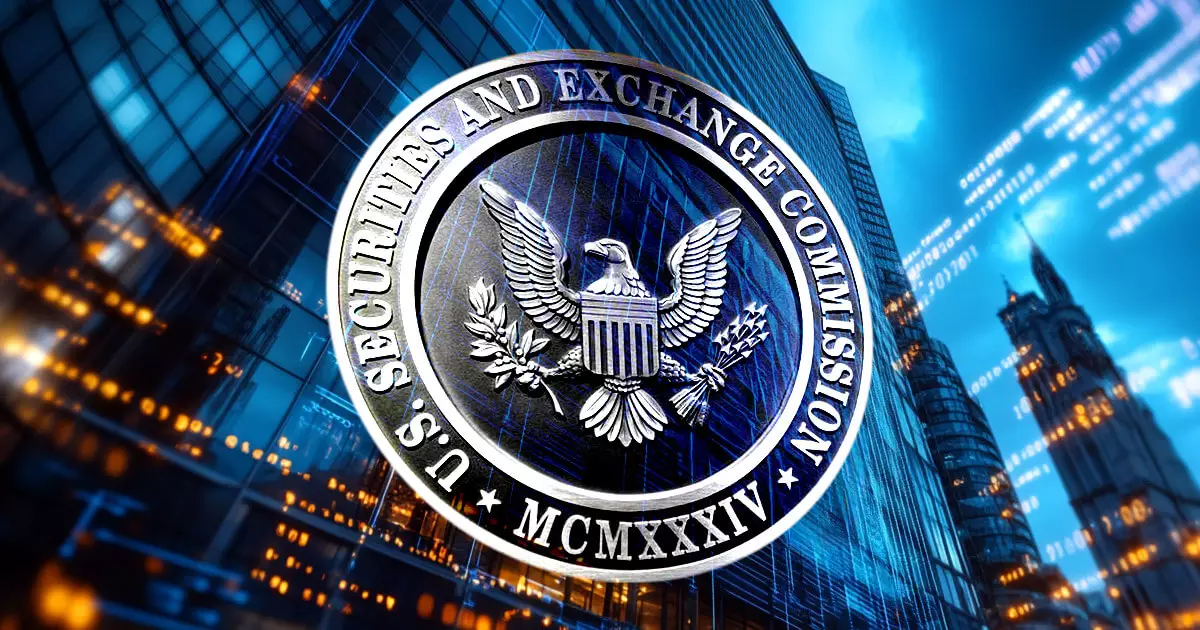The financial landscape is ever-evolving, and as technology advancements accelerate, regulatory bodies like the United States Securities and Exchange Commission (SEC) must adapt to these changes. In a significant strategic shift, the SEC has announced the establishment of the Cyber and Emerging Technologies Unit (CETU), replacing its former Crypto Assets and Cyber Unit. This rebranding reflects a broader vision to combat financial crimes increasingly intertwined with modern technology, from artificial intelligence (AI) to blockchain innovations and cybersecurity threats.
The CETU marks a strong stance by the SEC in addressing the complexities and risks posed by emerging technologies in the financial sector. With Laura D’Allaird, a veteran of the SEC’s Division of Enforcement, at the helm, the new unit intends to blend regulatory enforcement with innovation. This balance is critical, as the SEC aims to protect investors without stifling the growth of new technologies that promise to revolutionize finance.
The unit’s agenda revolves around six main focus areas: AI-driven fraud schemes, manipulation through social media and the dark web, unauthorized access to brokerage accounts, crypto asset fraud, hacking of confidential information, and compliance with cybersecurity rules. Each of these areas reflects an acute awareness of the evolving tactics employed by malicious actors in the digital realm.
The incorporation of AI as a central area of focus is particularly telling. As financial institutions increasingly integrate AI technologies, the potential for misuse and fraudulent schemes has escalated. By prioritizing oversight of AI-related infractions, the SEC seeks to stay ahead of potential threats to market integrity and investor trust.
Moreover, the focus on social media manipulation highlights a recognition of the disruptive power of digital platforms in financial markets. The SEC is stepping up its vigilance regarding the spread of misinformation that could lead to market volatility or investor losses.
Acting SEC Chair Mark Uyeda’s declaration that the CETU will work closely with Commissioner Hester Peirce’s Crypto Task Force signifies a dual commitment: enforcement of regulations while simultaneously nurturing technological innovation. This approach reflects a delicate balancing act that many regulators worldwide are grappling with today.
Historically, prior regulatory efforts, especially under former Chair Gary Gensler, have sparked significant debates over their implications for the broader cryptocurrency market. Gensler’s aggressive enforcement strategies led to accusations of fostering regulatory uncertainty, particularly against firms such as Coinbase and Ripple. The CETU’s emergence signals a potential recalibration in regulatory philosophy, with a focus on practical engagement rather than punitive action.
This shift is complemented by recent SEC initiatives to demystify the regulatory landscape surrounding digital assets. Rescinding restrictive accounting guidelines and clarifying asset classification rules indicate an intent to streamline compliance, thereby bolstering industry confidence.
The SEC’s evolving stance aligns with the broader speculative and competitive dynamics of the global financial sector. With international players racing to develop Central Bank Digital Currencies (CBDCs), the SEC’s proactive engagement with private digital assets may not only stabilize the U.S. market but also position the nation as a leader in blockchain technology.
By concentrating on fraud related to blockchain technology and crypto assets rather than broadly categorizing all forms of digital assets as unregistered securities, the CETU delineates a critical distinction in its regulatory strategy. This nuanced approach could pave the way for clearer guidelines that enable innovation while safeguarding investors.
As the CETU embarks on its mission, the success of this initiative will likely depend on the effectiveness of the SEC in maintaining that balance. By intricately weaving together cybersecurity insights with regulatory vigilance, the CETU aims to foster a secure environment for financial transactions powered by groundbreaking technologies.
As the SEC implements its new framework, stakeholders in the financial and technological ecosystem must remain vigilant and adaptive. The CETU represents a promising initiative geared towards fortifying market integrity amid rapid technological advancements. The fine line between promoting innovation and guarding against emerging threats will be both a challenge and an opportunity for the SEC moving forward.
The establishment of the Cyber and Emerging Technologies Unit encapsulates a pivotal moment for the SEC, signaling its readiness to engage with the complexities of a digital economy. The unit’s focused approach may serve as a model for regulatory agencies worldwide as they too seek to navigate the labyrinth of financial innovation responsibly.

